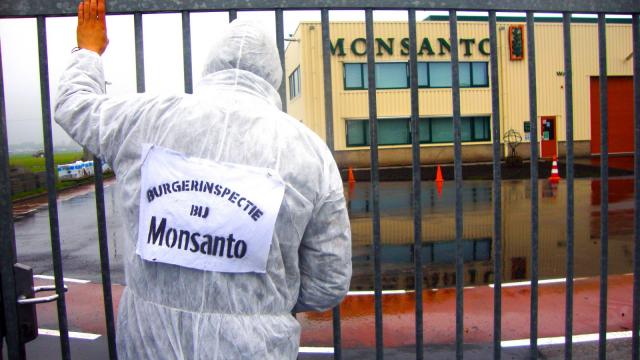
Scientific journal publishing reached a low point in November, when the journal Food and Chemical Toxicology retracted a studyby Gilles-Eric Séralini and colleagues at Caen University in France. The study, published in November 2012, assessed the effect of feeding rats corn genetically modified to withstand treatment with Monsanto’s herbicide Roundup for two years (that is a lifetime in rat years). Small amounts of Roundup were added to the diet of one group of rats.
The purported advantage of genetically modified “Roundup-ready” crops is that herbicide can be spread directly on crops, killing weeds but not the crops. Most previous animal studies had found no ill effects of genetically modified crops, but Séralini found that animals that ate the genetically modified corn or ate Roundup itself developed more cancers and died earlier than control animals.
A sustained and vitriolic attack on Séralini’s paper began within hours of publication. Thirteen letters to the editor were published in the journal, accusing the authors of a multitude of errors including using the wrong strain of rats, using the wrong number of rats, and animal cruelty for allowing tumors to grow to a large size. Fraud was implied. The authors wrote a comprehensive, reasoned response, and that should have been that.
Instead, a year after publication, the journal announced that it was retracting the study.
According to SpinWatch, a European muckraking organization, 11 of the authors of letters to the editor slamming Séralini’s study had undisclosed financial relationships with Monsanto. In 2013, Paul Christou, the editor of Transgenic Research, coauthored an attack on Séralini and the FCT editors in his own journal, calling for a retraction of the study.
Christou did not disclose his multiple conflicts of interest, including being an inventor on patents on GM crop technology, many of which Monsanto owns. Meanwhile, back at Food and Chemical Toxicology, a new position for an associate editor was filled by Richard E. Goodman, a University of Nebraska professor who previously worked for Monsanto, and who has a longstanding association with the industry-funded International Life Sciences Institute (ILSI). Months later, Elsevier, FCT’s publisher, announced the retraction.
The quality of Seralini’s work aside, the process by which his paper was retracted reeks of industry pressure. The progression of science is not the least bit linear, but the process has to proceed unencumbered by censorship of unpopular or commercially disadvantageous results.
The peer review process is imperfect – there are countless bad studies in the medical literature – but peer review works best when the efforts of reviewers and editors are devoid of conflicts of interest and outside pressures. The self-correcting nature of science can only work when industry does not taint the process.
According to the Committee on Publication Ethics, a group that advises medical editors and publishers on ethical issues, particularly, how to handle cases of research and publication misconduct:
Journal editors should consider retracting a publication if:
-
they have clear evidence that the findings are unreliable, either as a result of misconduct (e.g. data fabrication) or honest error (e.g. miscalculation or experimental error)
-
the findings have previously been published elsewhere without proper crossreferencing, permission or justification (i.e. cases of redundant publication)
-
it constitutes plagiarism
-
it reports unethical research
There are hundreds of studies that should be permanently removed from the scientific literature, but the Séralini study is not one of them. The FCT retraction announcement very clearly states: “Unequivocally, the Editor-in-Chief found no evidence of fraud or intentional misrepresentation of the data” – and then goes on to say, incredibly, that the study is being withdrawn because the journal’s own review of the primary data show that the results are inconclusive.
Inconclusive? Until a hypothesis is proven, all results are inconclusive.
It would have been perfectly appropriate for the journal to have written an editorial expressing its concerns. Instead, it seems the editors may have succumbed to industry pressure to do the wrong thing. The media coverage in the U.S. has been one-sided; criticism of Séralini’s study has been widely covered in mainstream press, while information about the conflicts of interest of critics have remained in the alternative press.
Anecdotally, we have heard several stories of journal editors being pressured by industry to suppress publication of papers that cast a commercial product in a poor light. How often does this intimidation occur? It would be a service for the editors and writers involved to make these stories public. Industry should not be allowed to intimidate medical and scientific journals, and journal editors need to have a united front against industry influence and a unified strategy on how best to combat it.
The retraction of the Séralini study is a black mark on medical publishing, a blow to science, and a win for corporate bullies.
Adriane Fugh-Berman MD and Thomas G. Sherman PhD are associate professors in the Department of Pharmacology and Physiology at Georgetown University Medical Center (GUMC).
3 WAYS TO SHOW YOUR SUPPORT
- Log in to post comments
















